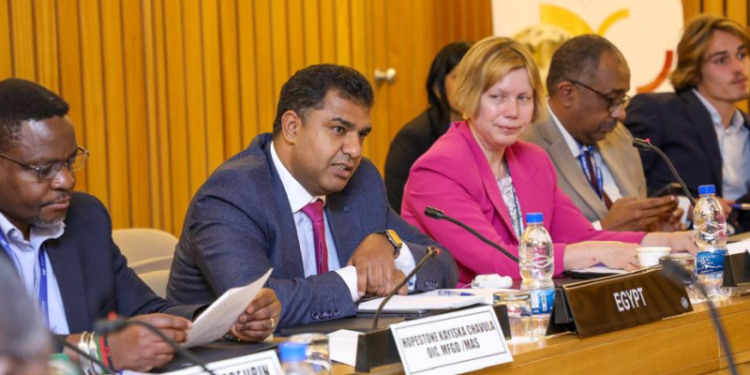Economic governance experts at the Second Session on the Committee on Economic Governance in Addis Ababa have lobbied for changes to the global financial system to better address Africa’s specific financial needs, including better access to concessional financing.
- Public debt is consuming between 67% and 70% of GDP, consisting of non-concessional debt.
- The overall financing gap in Africa is estimated at $1.7 trillion to $2.1 trillion annually, with a realistic need for $700bn per year.
- Development aid to Africa has declined from 33% to 27% partly due to some countries graduating to middle-income status and increased urgent needs in other regions.
“Multinational corporations have manipulated financial growth to minimize tax liabilities through mechanisms like transfer pricing. An inclusive framework was introduced in 2015 aimed to address these issues, but African countries face challenges in capacity and negotiation complexity,” Gamal Ibrahim, Chief, Economic Governance and Public Finance Section Macroeconomics, Finance and Governance Division, ECA.
At the same event, held ahead of the Fourth International Conference on Financing for Development, economic experts insisted that the overlapping, multifaceted global crises, “implies a continued need for various fiscal support measures for the continent.”
“The number of food insecure people in Africa is as large as it was in the mid-2000s; and the average tax to GDP ratio is still below the pre-pandemic levels, with a proposal to raise it through wealth and property taxation,” Zuzana, Schwidrowski, ECA Director of the Macroeconomics, Finance & Governance Division said.



